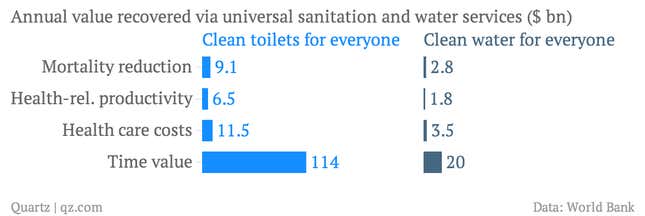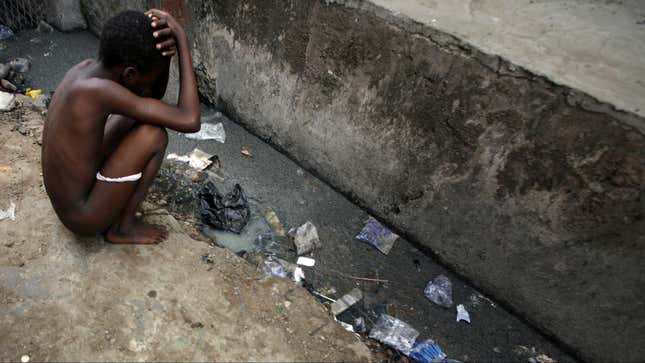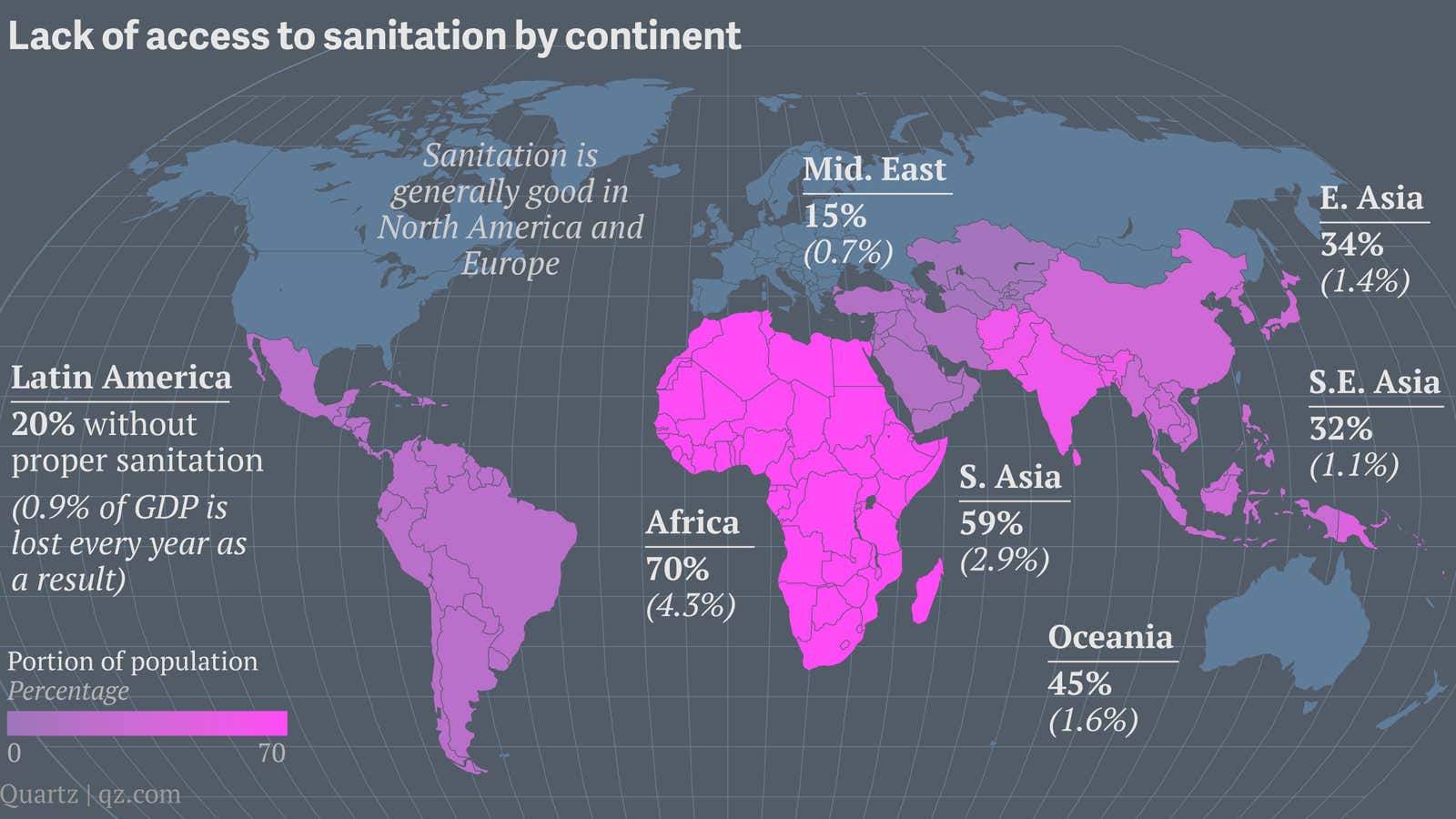It’s World Toilet Day, which means it’s time to face the fact that 35% of the world’s population—2.5 billion people—lack access to safe, clean toilets. This isn’t just a humanitarian or public health catastrophe. Global businesses should find this alarming, too. That lack of toilets and proper sanitation are draining $260 billion off the global economy each year.
The biggest source of economic losses related to toilets is something much more mundane than health care costs or work hours lost due to fecal-borne illness. It’s that people have to spend a long time finding a place to relieve themselves in private. The World Bank estimates that making clean toilets universally available would generate $220 billion in economic benefits (pdf, p.5) each year. Some $114 billion would come from the value of time people don’t spend hunting for toilets.

In places without safe, clean toilets, the average person spends at a minimum half an hour a day trying to find a private place to relieve himself, says the World Health Organization. That adds up to 7.6 days a year. It costs India—which in some areas has only 30 or 40 toilets for 29,000 people—around $10.7 billion a year.
Of course, the diseases that blossom around cesspits are sapping billions of dollars off the world economy, too. Dirty toilets and poor sanitation cause 88% of global diarrhea cases (pdf, p.16), according to the World Health Organization.

Some 1.9 million people die from preventable diarrheal diseases, more than HIV/AIDS (though in the poorest countries, the comparative mortality rates are about even). And poor sanitation, as well as a lack of hand-washing facilities, is a major cause of diseases like cholera, which kills between 100,000 and 120,000 people a year. Child mortality rates are particularly grim. Some 800,000 children die each year from diarrhea largely caused by poor sanitation—nearly 2,200 a day. Addressing those problems would slash around $15 billion a year in health care costs, according to the World Bank.
Rampant sickness also results in crushing productivity losses. Providing universal safe, clean toilets and water would restore around $12 billion in productivity lost each year due to preventable deaths, reports the World Bank. By adding 12 billion working days a year lost when sick workers take the day off, universal access to clean toilets and water would save up to $8.3 billion a year.
The toilet shortage is also making people in poor countries dumber. Each year, 500 million people are infected by whipworms from ingesting fecal matter in soil, water and vegetables. Every incidence of infection shaves an average 3.75 points off someone’s IQ—which adds up to a combined loss of 1.9 billion IQ points each year. What’s more, children would attend 443 million more school days a year if they weren’t constantly afflicted with diarrhea.
